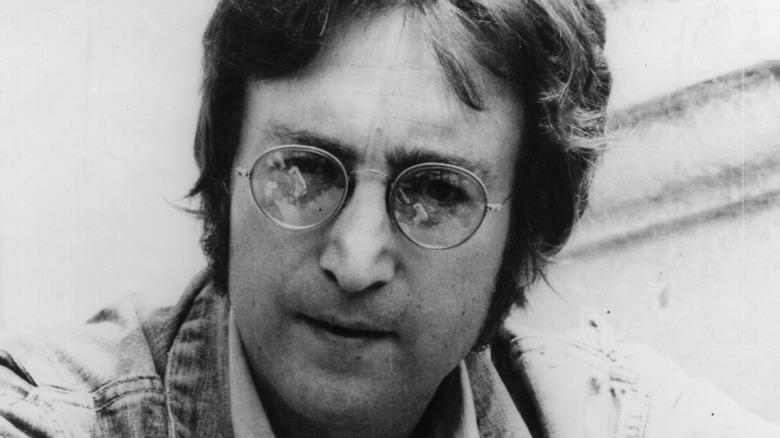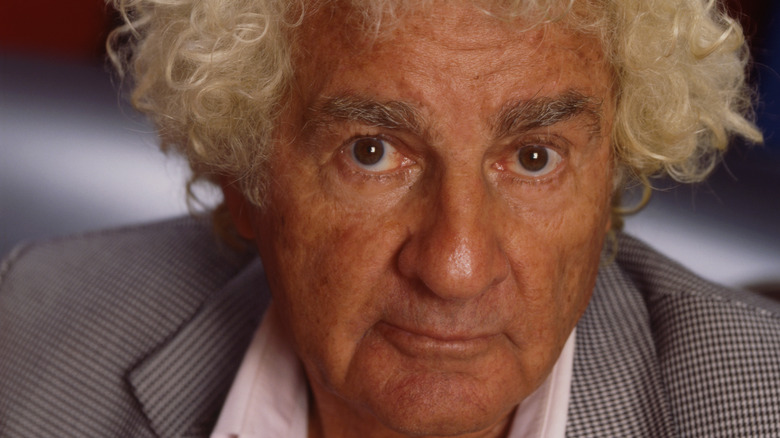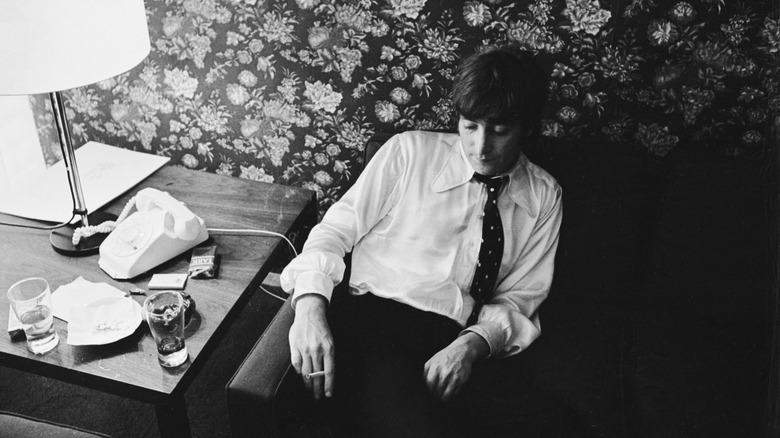John Lennon Wrote His Most Emotional Song After Undergoing Primal Therapy
John Lennon, a ground-breaking artist, was undoubtedly a troubled soul, not without his fair share of controversy and dark secrets. The recipe of fame at a young age and unresolved childhood trauma is certainly bound to mess most people up.
Regardless of where these public and private personas diverged, it can't be denied that Lennon's unflinching approach to honesty and vulnerabilities in his songwriting laid the groundwork for countless songwriters that followed him.
After the Beatles' break-up in 1970, Lennon seemed at a creative crossroads. The only place left for him to go, it seemed, was inwards. After an intensive crash course into his own soul, the result was a double album with his partner Yoko Ono in 1970's ”Plastic Ono Band,'' an album that routinely ranks high on ”best albums of all-time lists” (via Rolling Stone).
This is the tale of how Lennon's pain was confronted through primal therapy, and creatively manifested to produce one of Lennon's most emotional and intensely personal songs.
Shout! Shout! Let It All Out!
The '70s were a time of immense self-discovery, and many forms of fad therapies became fashionable. Enter Primal Therapy. The term "primal therapy" was first coined by Arthur Janov, a Californian clinical psychologist. He described it in his book "The Primal Scream” as a "one-size-fits-all" solution for neurosis.
Many mental illnesses, according to Janov, are induced by childhood trauma, or what he refers to as "primal pain." For example, suppose a patient was allowed to revert to their youth. In that case, they could theoretically access the effects of trauma and suffering on their psyche, confront it, and overcome it. As a result, "primal scream therapy" provided patients with a safe place to scream or cry out in order to get to the root of their neuroses and childhood trauma (per The Washington Post).
For John Lennon, who had a famously turbulent and tragic childhood, it seemed only a matter of time before he was drawn to primal therapy. Further famous clientele included Lennon's partner, Yoko Ono, and James Earl Jones. However, in the interests of science and transparency, one should note that primal therapy has been largely debunked by medical communities, despite Janov's claims that it was the ”"the most important discovery of the 20th century" (via The New York Times). It also had its fair share of problematic and outdated claims. For instance, Janov controversially maintained that primal therapy could cure homosexuality (via the British Medical Journal).
According to Du Noyer's ”John Lennon: The Stories Behind Every Song 1970-1980” Lennon's primal therapy was abruptly interrupted due to the expiration of his U.S. visa. Regardless, it appears that the results of this therapy had a significant impact on Lennon and his creative process, particularly the opening track of "Plastic Ono Band," ”Mother.”
Emotional Tolls and the Recording Process
The song begins with a manipulated, pitched-down funeral bell, but for whom is this death knell tolling? The Beatles? Or was it for something more profound, his mother? His childhood? Or perhaps, a combination of all these things?
As the song progresses, it becomes evident that ”Mother” doesn't just address the tragic demise of Julia Lennon, John's mother. Instead, each verse directly addresses three of Lennon's family members. The first two address his mother, Julia, and his father, Alfred (both of whom abandoned him at a very young age). The final verse warns his then seven-year-old son Julian (with whom he'd have a notoriously estranged relationship), ”not to do what I have done”.
According to the track's drummer, fellow Beatle Ringo Starr, the emotional toll of this track plus John's newfound breakthroughs with primal therapy meant that Lennon was prone to spontaneous, emotional outbursts and screaming throughout the album's recording process (per NME).
”Mama don't go/ Daddy come home,” Lennon painfully screams throughout the song's climatic refrain. No matter how uncomfortable it may be for the listener, one can't deny the power of Lennon's primal anguish and anger as the song fades out. Lennon would record these screams at the end of the night to avoid shredding his vocal cords during the day's session (according to ”Hold On John” by John Kruth).
Co-produced by Lennon and Ono and the infamous Phil Spector, the ”Plastic Ono Band” double album was truly innovative for its intimate intensity upon release. The album gradually had a profound effect on many of Lennon's fans and contemporaries at the time, who would continue to draw inspiration from its heartbreaking honesty for decades to come.


